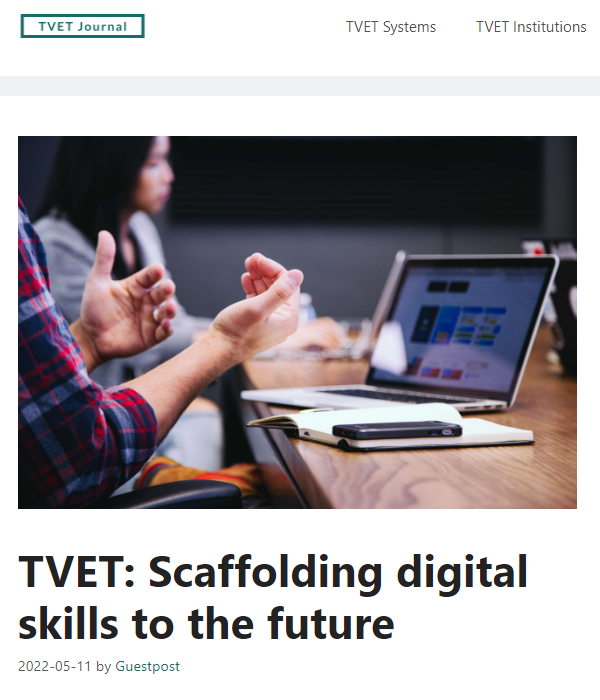Accueil: News | YEM en bref | Pourquoi YEM
Les Pays: Algérie | Israël | Jordanie | Liban | Libye | Maroc | Palestine | Tunisie
Priorités: Anticipation des compétences | Formation pour le travail | Compétences numériques | Compétences entrepreneuriales
Ressources: YEM Skills Panorama | Profils de pays | Données et Statistiques | YEM Publications | Des autres ressources utiles
La mise en réseau: Forum d'échange | Blogs et thinkpieces | Plateforme YEM pour les jeunes | Membres de la communauté | Rejoindre la communauté
Forum: Vue d'ensemble | Forum régional final YEM | YEM Forum régional

| Author/s: | Glenda Crosling, Graeme Atherton, Angela Lee Siew Hoong, Supervised by: Sarah Elson-Rogers |
| Éditeur: | TVET Journal |
| Publié: | 2022 |
While the key role of digital competence is well-acknowledged in meeting the needs of Industry 4.0 and the new demands of the digital economy and society, COVID-19 has exposed, with urgency and intensity, the importance of building digital competence to sustain societal operations. Education is no exception. In technical and vocational education and training (TVET), teachers’ and students’ digital skills have been fundamental to educational continuation. With online education remaining integral to educational offerings post-COVID-19, the issue of digital skills continues to be highlighted as well as the need for it to be integrated in curricula. But given the wide spectrum of TVET’s educational programmes, digital competence is correspondingly broad; challenging questions remain about the proficiency levels necessary for effective TVET education and learning outcomes.
In this scenario, multiple resources by way of digital frameworks are available online to help TVET teachers and consequently their students address the digital needs which underpin successful educational experiences. These can also guide digital skills development. A project commissioned by UNESCO-UNEVOC to the Centre for Higher Education Research at Sunway University in Malaysia, in developing a repository for information and debate on digital skills and competency for TVET, has identified relevant frameworks, some of which are featured in this article. The key features of these frameworks as relevant to TVET educators are discussed.